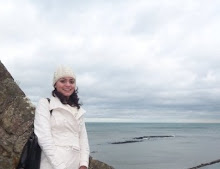In both Tintern Abbey and To The Lighthouse one thing that i noticed about both experiences of epiphany is how incredibly all encompassing they both are. They are both divine and secular in the sense that there seems to be an understanding of everything. In Tintern Abbey, Wordsworth writes, 'A presence that disturbs me with the joy/Of elevated thoughts; a sense sublime/Of something far more deeply interfused' (lines 93-96). By being both sublime AND "something far more deeply" it would seem that Wordsworth is turning the epiphany into something far more that a religious experience, even noting that there are things far deeper than a religious epiphany- I doubt the church at the time loved that.
At the end of To The Lighthouse, Lily says that "I have had my vision" and it would seem that this vision is something that is not just regarding Mrs.Ramsay or herself but instead everything. Suzette Henke writes in her essay on To The Lighthouse "The vision is artistic and epiphanic, mystical and materialist- a revelation that proves to be so all-encompassing that it is difficult to envisage its scope or (en)gendering radiance..." How could I possibly say it better than that!
So when i read Kari's Blog, her mention of an epiphany possibly being the experience of "seeing into the life of things" struck me as really interesting, even though i am not entirely sure i fully understand it. However i like the idea, maybe Lily's epiphany is a result and product of her being able to see into the life of Mrs. Ramsay, someone who has absolutely befuddled her for so long. The ability to take oneself out of your own body and experiences and understand others possibly allows for epiphanies?
Subscribe to:
Post Comments (Atom)

No comments:
Post a Comment